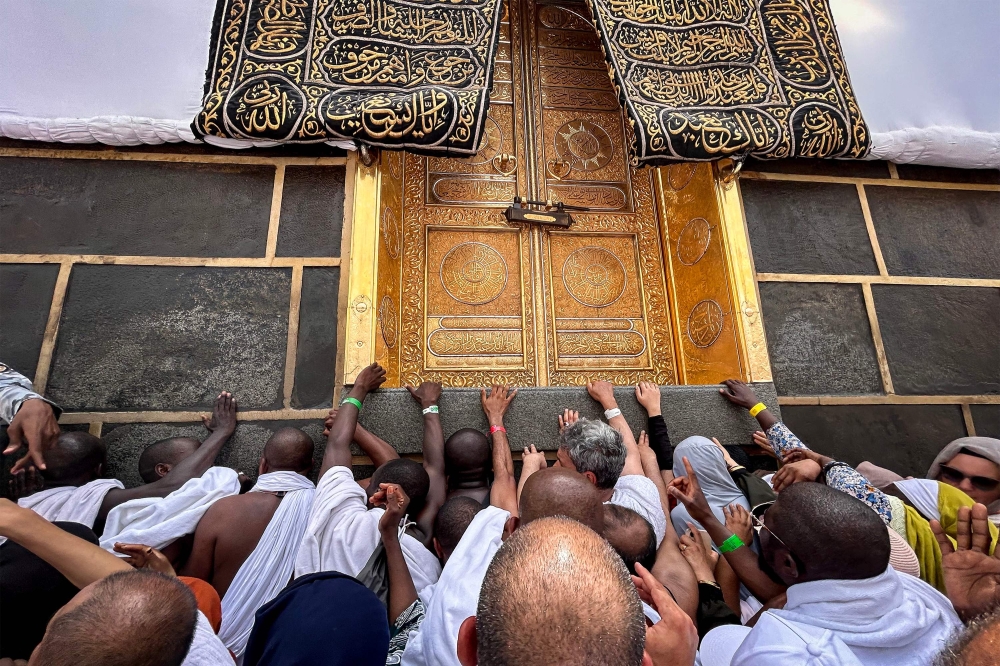The annual Hajj pilgrimage has officially begun in Mecca, Saudi Arabia, with more than 1.5 million pilgrims from around the world gathering to participate in the sacred rituals. This year’s Hajj comes amid regional tensions, such as the conflict in Gaza, which has prevented some Palestinians from attending. However, Syrian pilgrims are able to make the journey to Mecca for the first time in over a decade via direct flights from Damascus.
The Hajj is a spiritual journey that is one of the Five Pillars of Islam, mandatory for all Muslims who are physically and financially capable. It is a momentous occasion for pilgrims to seek forgiveness, draw closer to God, and pray for peace. Many devotees spend years preparing for the pilgrimage, saving money and waiting for a chance to embark on this significant journey in their later years.
During the Hajj, pilgrims wear traditional pilgrim attire and perform rituals such as circling the Kaaba in the Grand Mosque, praying, and participating in various religious activities. Security measures have been implemented to ensure the safety of pilgrims, with checkpoints set up to prevent unauthorized individuals from reaching the holy sites.
The pilgrimage involves various stages, including a vigil on Mount Arafat, collecting pebbles at Muzdalifa, and the symbolic stoning of pillars representing the devil in Mina. The Hajj culminates in the Eid al-Adha holiday, where Muslims around the world sacrifice animals and distribute the meat to the less fortunate.
Despite the challenges posed by the ongoing pandemic, the Hajj has returned to its monumental scale after several years of restrictions. Last year, over 1.8 million pilgrims participated in the pilgrimage, nearing the levels seen in 2019 before the pandemic. The Hajj remains a powerful and unifying experience for Muslims worldwide, bringing people together in faith and devotion.
As the pilgrims embark on their spiritual journey to Mecca, they are filled with a sense of reverence and humility, seeking guidance and blessings from Allah. The Hajj is a time of reflection, repentance, and renewal for Muslims, providing them with a unique opportunity to strengthen their faith and reaffirm their commitment to Islam. The pilgrimage serves as a powerful reminder of the shared values and beliefs that unite the Muslim community, transcending geographical boundaries and cultural differences.











